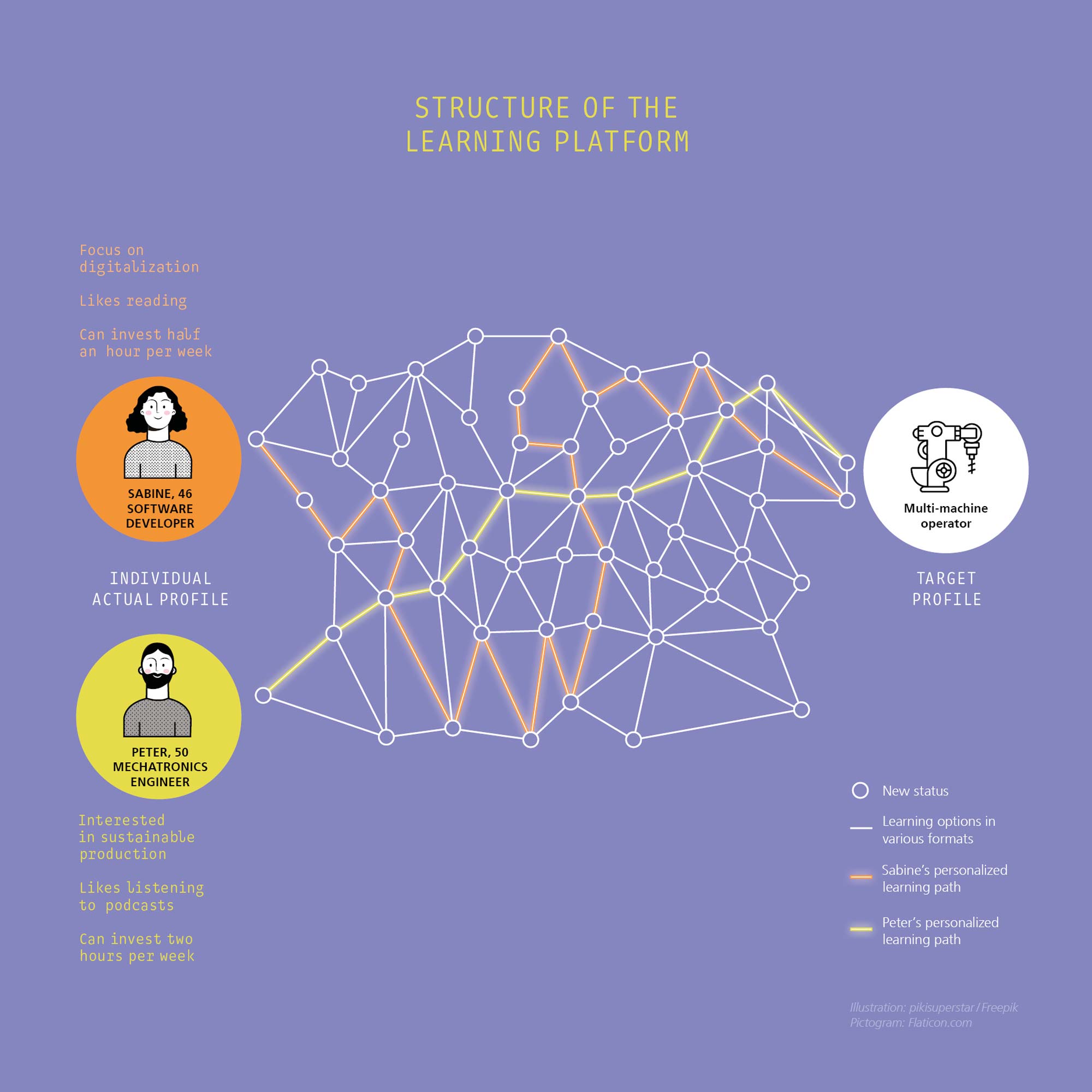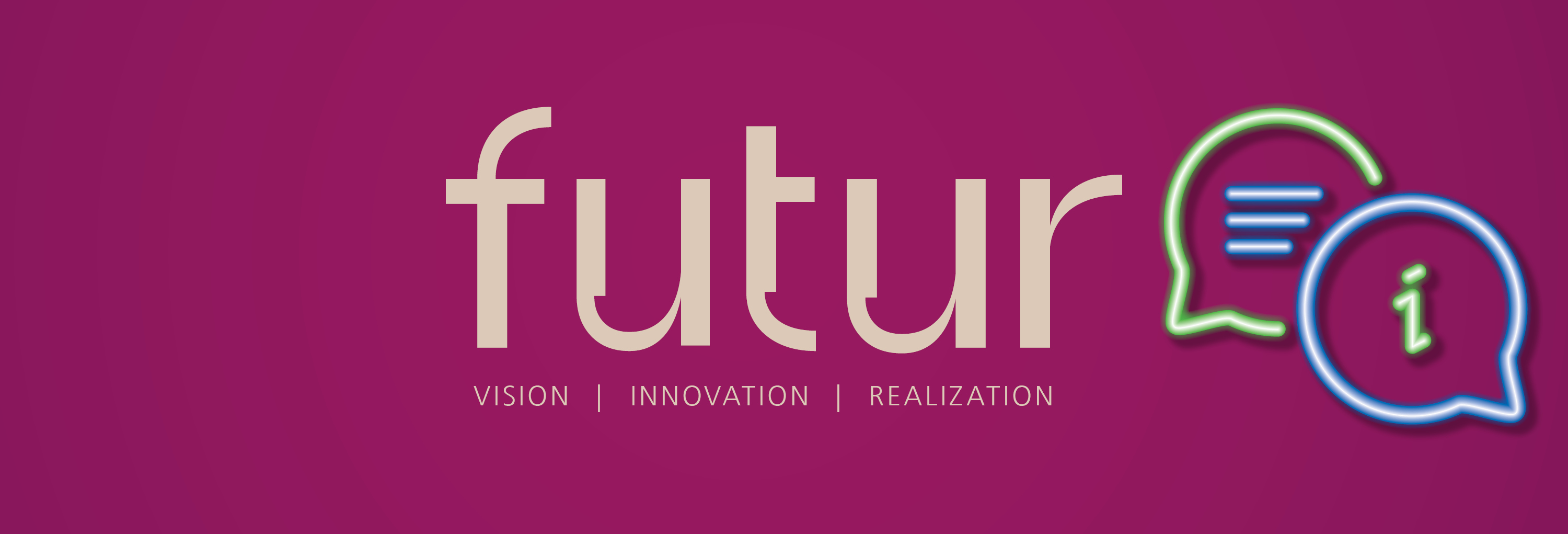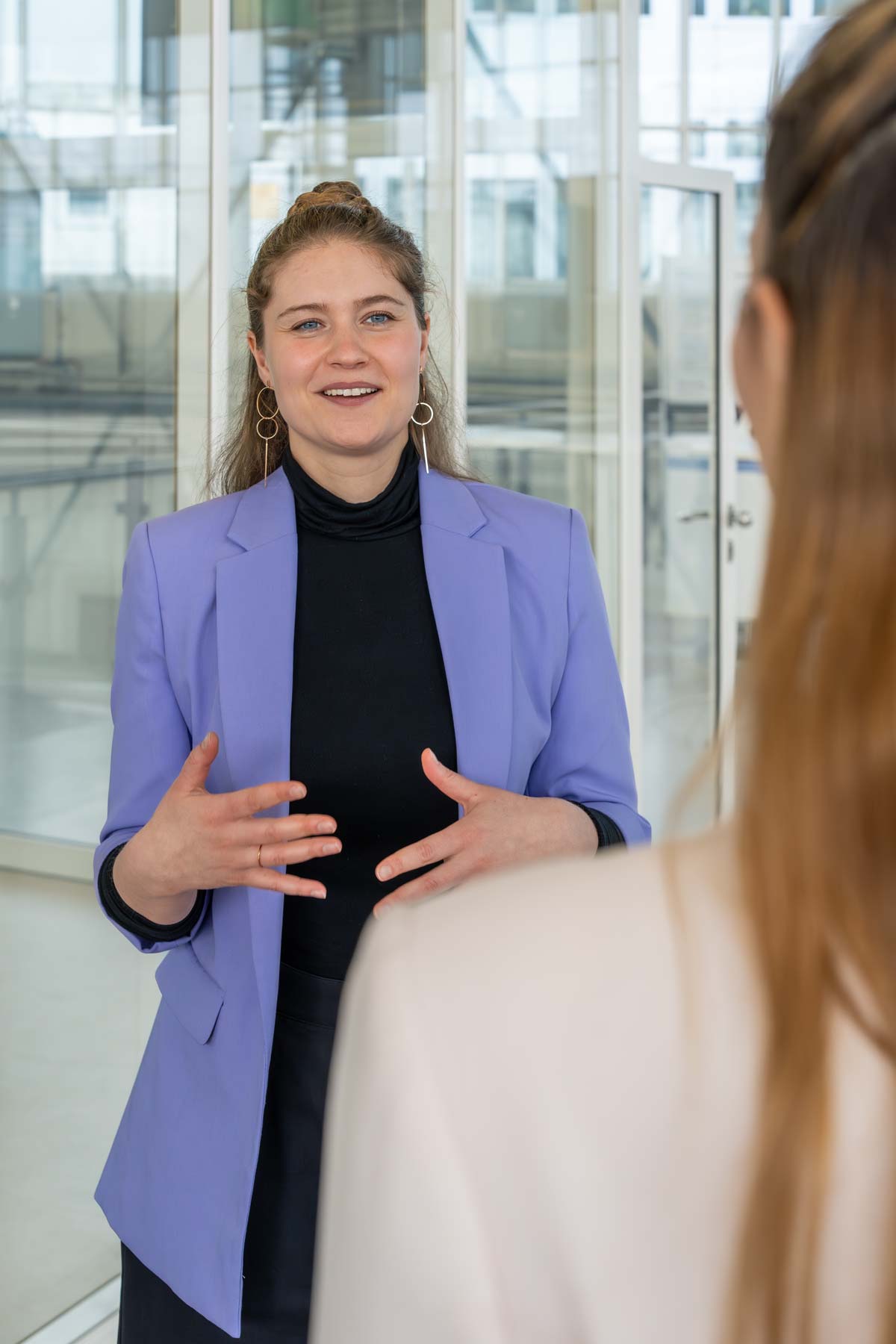Tailor-Made Skills
The shortage of skilled labor in Germany is not only a consequence of familiar demographic changes as well as the challenges that companies are facing in integrating qualified immigrants. It is also a question of skill development: The Industry 4.0 automation wave is changing the requirements for employees’ skills and abilities, altering entire job profiles. For example, operating machines nowadays often requires programming skills rather than expertise in mechatronics. In order to remain competitive, companies must strategically train their employees for these new challenges in digital, networked production. While large corporations systematically train their staff, small and medium-sized enterprises (SMEs) often lack the capacity to do so.
This is where the KIRA Pro project comes in, helping medium-sized industrial companies to purposefully evaluate the areas in which skills need to be developed and expanded in the medium term. The objective is to link the strategic level of the company – i.e. asking where development should go – directly with the operational level, i.e. the training of individual employees. To achieve this, the KIRA Pro project team developed a learning path generator. The AI-supported learning platform assists SMEs in their strategic HR development by comparing the employees’ actual skills with the required ones and creating a learning path with a tailored selection of learning content. Four parameters are matched by the AI-based system: the company’s requirements (target profiles), the employees’ personal development goals (preferences), their individual skill levels (actual profiles) and the available range of training options (offer).
State of the art
The learning platform developed by technology partner Peers Solutions GmbH uses an AI-based assistance system to generate adaptive learning paths that take into account current developments and various trends in the continuing education market – the keyword being New Learning:
- The developed platform offers learners a high degree of flexibility, which enables faster learning processes in the face of changing technologies and increasing environmental dynamics.
- The resulting flexibilization facilitates individual and self-guided learning, which is also made possible by the learning platform. The focus is on the learners and their needs. They take an active role in the learning process, which encourages both a high degree of personal responsibility and the ability to reflect.
- In addition, the learning platform divides knowledge into small units. This form of microlearning is considered to be one of the most relevant digital forms of learning in the coming years, as it enables modular and therefore flexible learning.
- Finally, learners have access to new digital learning formats on the platform, such as podcasts, e-learning and virtual reality.
To generate the adaptive learning paths, gaps between the currently available skills and those required in the future are first identified using an evaluation system known as the skills gap assessment. This involves combining the employee’s self-assessment (ACTUAL 1) with the external assessment by the respective manager (ACTUAL 2) and comparing it with the target values (TARGET) specified by the management team. The AI algorithm analyzes the largest knowledge gaps (i.e. the differences between ACTUAL and TARGET) in combination with the greatest learning potential (on a scale from 0 for beginners to 100 for experts) and links these with the selected learning preferences – such as desired skills and learning formats – as well as the individual learning capacity. On this basis, the system suggests suitable learning content and exercises for the user. These tailored learning paths, which automatically adapt to individual needs, skills and learning progress, provide an optimal learning experience by allowing users to progress at their own pace.

Straight into application
In order to accurately implement the platform in companies, researchers from Fraunhofer IPK organized workshops to accompany the project at the companies Harms & Wende and FBT Feinblechtechnik. The workshops' target was to support the companies in developing and implementing a comprehensive corporate transformation and skill development strategy.
Strategic HR development with a career framework
Together with Harms & Wende, a company specializing in welding technology, the Fraunhofer IPK team designed and implemented a so-called »career framework« as part of the accompanying organizational development. It enabled the SME to systematically generate internal career paths and thus promote its employees' long-term career development. The highlight: Comparable competence-oriented role profiles, which were divided into basic and add-on roles, allow career paths to be put together as modules. With the basic roles, classic career paths such as the evolution from junior hardware developer to senior hardware developer can be mapped. On the other hand, the add-on roles, such as project manager, represent extra qualifications that can be combined with the basic roles. These additional, smaller target profiles help to counteract any existing bottlenecks in the team in the short term and enable employees to be trained precisely in line with the company’s strategic transformation objectives.
From process-employee matrix to skill profile
Together with FBT Feinblechtechnik, Fraunhofer IPK researchers have advanced systematic skills development from a quality management (QM) perspective. Like many companies in Germany, the SME is certified according to the ISO 9001:2015 quality management standard, which is why very detailed quality management documentation was already available. This allowed the researchers to refer to a process map, a process-employee matrix and 50 sub-process descriptions in order to develop skill profiles at the main and sub-process level and roles in a multi-stage process. This QM-driven derivation of skill profiles down to the individual level helps to avoid losing sight of the connection between the targeted job and the qualifications provided by the individual training approach. In this way, the learning platform can be used to specifically prioritize those skills that are central to company processes or particularly common. The chosen approach also meets the requirements of various QM frameworks such as ISO or EFQM regarding employee skills development: Relevant skills are derived from the company’s objectives, available skills are assessed and skills gaps are identified. On this basis, suitable qualification measures can be derived and implemented at the individual level and documented accordingly in order to ensure verification and evaluation of the effectiveness of the measures – including towards third parties such as auditors.
 Fraunhofer Institute for Production Systems and Design Technology
Fraunhofer Institute for Production Systems and Design Technology

